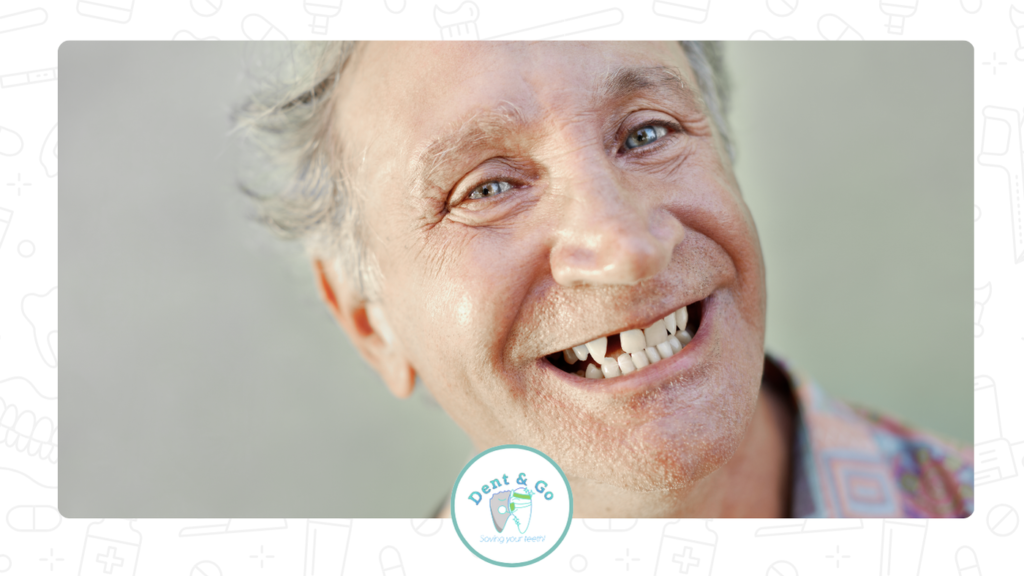Imagine trying to enjoy your favourite meal, but finding it too difficult to chew. Picture having a conversation, but struggling to pronounce words correctly. This is the reality for many people living with edentulism, the condition of being toothless. It’s a challenge that affects daily life in significant ways, especially for the elderly. But the good news is, with the right care and habits, tooth loss is largely preventable.
According to the National Institute of Dental and Craniofacial Research, 27.27% of seniors aged 65 or older have lost all their teeth. While this can be a daunting statistic, it’s important to know that tooth loss is preventable.
What Is Edentulism?
Edentulism is the complete loss of teeth, whether it’s just the upper jaw, the lower jaw, or both. This can happen for several reasons:
- Tooth Decay: Cavities that go untreated can lead to severe tooth damage and eventually tooth loss.
- Gum Disease: Starting as gingivitis (gum inflammation) and progressing to periodontitis (serious gum infection), this condition can destroy the tissues and bones that support teeth.
- Trauma: Accidents or injuries can result in losing teeth unexpectedly.
The Impact of Edentulism
Losing teeth isn’t just about appearance. It affects many aspects of life:
- Eating and Nutrition: Without teeth, chewing becomes difficult, which can lead to a limited diet and nutritional deficiencies. Crunchy fruits and vegetables, meats, and other nutritious foods might be avoided.
- Speaking: Teeth play a crucial role in speech. Missing teeth can lead to slurred or unclear speech, making communication harder.
- Self-Esteem and Social Life: The absence of teeth can make people feel self-conscious, leading to reduced confidence and social interaction.
- Facial Appearance: Teeth support the structure of the face. When teeth are lost, it can cause a sunken look and premature ageing.
How to Prevent Edentulism
Preventing tooth loss involves a combination of good oral hygiene, regular dental care, and healthy lifestyle choices. Here’s how you can keep your teeth healthy:
- Good Oral Hygiene Practices
- Brushing: Brush your teeth at least twice a day with fluoride toothpaste. Use gentle, circular motions to cover all surfaces of your teeth and gums.
- Flossing: Floss daily to remove food particles and plaque from between your teeth and under the gumline.
- Mouthwash: Use an antiseptic mouthwash to reduce plaque and prevent gum disease.
- Regular Dental Check-ups
- Professional Cleanings: Visit your dentist regularly for professional cleanings to remove plaque and tartar buildup.
- Early Detection: Regular check-ups can catch early signs of dental issues, allowing for timely treatment.
- Healthy Diet
- Limit Sugary Foods and Drinks: Reducing sugar intake helps prevent cavities. Opt for water, milk, or unsweetened beverages instead of sugary drinks.
- Balanced Nutrition: Eat a diet rich in vitamins and minerals. Foods high in calcium and phosphorus help maintain strong teeth.
- Avoid Tobacco
- Quit Smoking and Chewing Tobacco: Tobacco use is linked to gum disease and oral cancer. Quitting can significantly improve your oral health.
- Protect Your Teeth
- Mouthguards: If you play sports, wear a mouthguard to protect your teeth from injury.
- Dental Sealants: Consider dental sealants, which are protective coatings applied to the back teeth, to prevent cavities.
- Address Dental Problems Quickly
- Treat Cavities Early: Getting prompt treatment for cavities can prevent further tooth damage.
- Manage Gum Disease: Effective treatment of gum disease can stop its progression and help preserve your teeth.
Modern Solutions for Tooth Loss
Even with the best preventive measures, tooth loss can sometimes occur. Fortunately, modern dentistry offers effective solutions:
- Dental Implants: These are titanium posts surgically placed in the jawbone, acting as roots for artificial teeth. They look and function like natural teeth.
- Dentures: Dentures are removable appliances that can replace missing teeth. They come in complete or partial sets.
- Bridges: Dental bridges are fixed appliances that replace one or more missing teeth by anchoring to the surrounding teeth.
Edentulism can drastically affect a person’s life, but it’s not an inevitable part of ageing. By practising good oral hygiene, eating a healthy diet, avoiding tobacco, and visiting the dentist regularly, you can significantly reduce the risk of tooth loss. If you or someone you know is struggling with tooth loss, modern dental solutions can help restore function and confidence. Taking care of your teeth today can ensure a healthier, happier smile tomorrow.

